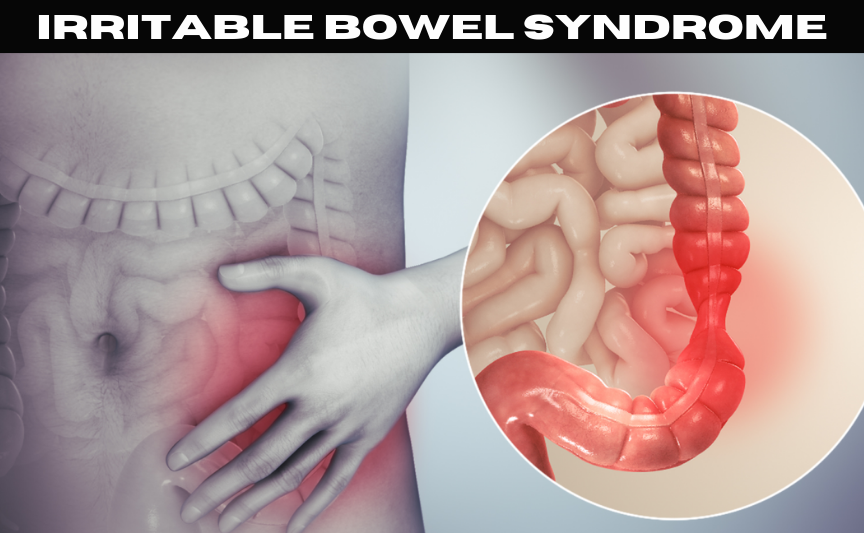Irritable bowel syndrome
Irritable Bowel Syndrome (IBS): A Common but Manageable Condition
Irritable Bowel Syndrome (IBS) is a functional disorder of the digestive system, affecting
millions of people worldwide, including many in India. IBS is not a life-threatening disease,
but it can cause significant discomfort and affect a person’s daily life. It does not cause
permanent damage to the intestines, nor does it lead to serious diseases like
cancer. However, it is a chronic condition that requires proper management.
What is IBS?
IBS is a disorder that affects the function of the intestines (gut), causing symptoms like
bloating, stomach pain, and irregular bowel movements. Some people may
have constipation (IBS-C), some may have diarrhea (IBS-D), and others may have a mix
of both (IBS-M). The symptoms can come and go, often triggered by food, stress, or
infections.
Common Symptoms of IBS
The symptoms of IBS can vary from person to person, but some common ones include:
✔Abdominal pain or cramping, often relieved after passing stool.
✔Bloating and excess gas, leading to discomfort.
✔Changes in bowel habits – diarrhea, constipation, or both.
✔Mucus in the stool (white or clear discharge).
✔Feeling of incomplete evacuation, even after passing stool.
Warning Signs: If you experience unexplained weight loss, blood in stool, fever, or severe
pain, consult a gastroenterologist immediately, as these may indicate a more serious
condition.
What Causes IBS?
The exact cause of IBS is not fully understood, but multiple factors contribute to it:
✔Gut-brain connection issues: Miscommunication between the brain and the gut leads to
abnormal bowel movements.
✔Intestinal muscle contractions: Overactive muscles cause diarrhea, while slow
movements lead to constipation.
✔Stress and mental health: Anxiety, depression, and emotional stress can worsen
symptoms.
✔Food sensitivities: Certain foods can trigger IBS symptoms, although it is not a food
allergy.
✔Infections: IBS can develop after a severe stomach infection (post-infectious IBS).
Common Triggers of IBS in India
IBS symptoms often worsen due to certain triggers. Some common triggers in India
include:
✅Spicy and oily food – Can irritate the gut and cause diarrhea.
✅Dairy products – Some people are lactose intolerant, worsening bloating and diarrhea.
✅Gluten-containing foods – Wheat, maida, and processed grains may trigger symptoms in
some people.
✅Carbonated drinks, tea, and coffee – Can stimulate the gut and increase bloating.
✅Stress and anxiety – Common in today’s fast-paced life, stress can make IBS worse.
How is IBS Diagnosed?
There is no specific test for IBS, but doctors diagnose it based on symptoms and by ruling
out other conditions. Your gastroenterologist may recommend:
✅Blood tests – To rule out infections, anemia, or celiac disease.
✅Stool tests – To check for infections or inflammation.
✅Colonoscopy or endoscopy – If there are severe symptoms or blood in stool to rule out
conditions like inflammatory bowel disease (IBD) or colon cancer.
Treatment and Management of IBS
While there is no permanent cure for IBS, it can be managed effectively with lifestyle
changes, dietary modifications, and medications.
1. Dietary Changes
✅Eat more fiber – Whole grains, fruits, and vegetables help with constipation.
✅Avoid gas-producing foods – Beans, cabbage, and soft drinks can worsen bloating.
✅Limit dairy products – If you are lactose intolerant, try alternatives like curd or almond
milk.
✅Try a low FODMAP diet – Avoid fermentable foods that can irritate the gut.
✅Drink plenty of water – Helps prevent constipation.
✅Eat small, frequent meals – Helps regulate digestion.
2. Lifestyle Modifications
✅Regular exercise – Walking, yoga, and physical activity improve digestion.
✅Adequate sleep – Helps regulate gut function.
✅Stress management – Meditation, deep breathing, and relaxation techniques can ease
symptoms.
3. Medications for IBS
✅Antispasmodics – Help relieve stomach cramps.
✅Laxatives – Used for IBS with constipation (IBS-C).
✅Anti-diarrheal medicines – Help with IBS-D.
✅Probiotics – Improve gut bacteria balance.
✅Antidepressants – Sometimes used if stress is a major trigger.
Living with IBS
✔Keep a food diary to track what worsens your symptoms.
✔Plan meals wisely – Avoid skipping meals or overeating.
✔Stay hydrated – Water and herbal teas can help digestion.
✔Seek medical help – If symptoms persist, visit a gastroenterologist.
Final Thoughts
IBS is not a dangerous disease, but it can affect daily life. The good news is that proper
diet, stress management, and medications can help control it. If you or someone you
know is struggling with IBS symptoms, consult a gastroenterologist for the right guidance.
✅Spread awareness, take care of your gut health, and live a comfortable life!
